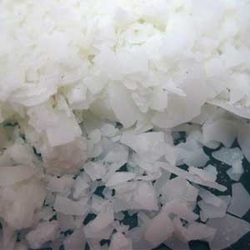Concrete or Asphalt: Which Is Better for Your Commercial Parking
Black-top and cement are both sturdy,
attractive materials for your venture, however one will be more qualified than
the other in light of the atmosphere you live in, the expected utilization of
your parking area and your financial plan. Take in more about every material
before settling on a definite conclusion.
The Differences
Cement is a blend of a total, bond and
water. The bitumen additives
is the coupling fixing that holds the total (which is ordinarily sand or
smashed rock) set up after the blend is poured.
Black-top likewise utilizes a total,
yet rather than concrete as the coupling fixing, it utilizes bitumen. Bitumen
originates from unrefined petroleum. It is warmed and blended with the total,
filled spot, then pushed down with a steamroller.
Advantages of Concrete: Low-Cost,
Long-Lasting
Cement is a naturally neighborly
material. Water overflow is spotless and ok for the encompassing biological
system. The item is less costly and less work is required for establishment,
bringing about a lower bill all around.
Since cement is a lighter material, it
doesn't ingest as much warmth as black-top, so you won't need to stress over
the "warmth island" impact, which can be a typical issue with
black-top parking areas in the late spring months. The lighter shading
additionally makes it conceivable to introduce less lighting apparatuses and
still hold the same measure of perceivability, which will spare you cash on
power costs.
Cement is a strong, enduring material
that can work for a parking area for up to 40 years. While minor repairs might
be fundamental for splits and disintegrating, no major reemerging must be
finished while the chunk is being used on the off chance that it is utilized
appropriately.
Advantages of Asphalt: Sturdy,
Recyclable
Black-top is generally utilized for
streets and parking areas, for the most part because of its capacity to
confront solidifying winter temperatures. While cement is vulnerable to harm
from the compression required with the stop/defrost cycle, black-top is less
influenced by this condition. Additionally, since the material is dim and
retains heat from the sun, even in winter, snow liquefies rapidly off of a
black-top surface.
Black-top is additionally totally recyclable.
When it comes time to tear up and supplant it, the material won't go to a
landfill, yet can be reused for different purposes.
The disadvantage to utilizing
black-top is the value it is normally a great deal more costly to clear with
black-top than cement on the grounds that the expense is specifically attached
to the cost of oil.
The utilization of an oil subordinate
in this material is additionally reason for ecological concern. Water that
keeps running off a black-top parking area will be polluted with chemicals and
have a much higher temperature than water than keeps running off cement.
At long last, black-top must be
restored like clockwork to hold its solidness, which adds support expenses to
the aggregate cost.
Settling on cement or black-top is
troublesome, yet an expert can give more knowledge into the positives and
negatives connected with every decision believe the sentiment of a solid repair
pro when settling on your choice.
Highway 1 provide
wide range of bitumen water proofer,bitumen emulsion additive products and
asphalt additives that can be used to enhance and modify bitumen over a range
of various treatments and applications.



Comments
Post a Comment